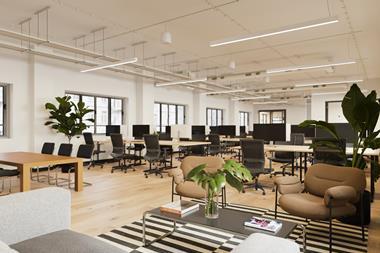London boasts one of the most diverse business communities in the world, where micro-businesses and fast-growth scale-ups rub shoulders with established, global brands.

The capital hosts nearly one-fifth of the nation’s businesses and has seen a greater influx of new enterprises than any other UK city over the past year.
Moreover, recent data from LinkedIn suggests Brexit has catalysed a new wave of innovation, with a jump in the number of entrepreneurs and small organisations since the referendum.
Against this backdrop, London’s business community is evolving quickly as it responds to uncertainty in the market, new competition both locally and from around the globe as well as rising customer expectations.
London’s status as a small-business hub is undoubtedly a positive for the city and its inhabitants. However, it presents an interesting challenge to commercial landlords. Not only does each business customer come with its own specific set of requirements, operating rhythm, growth ambitions and culture, but its needs evolve at speed.
With more than 4,000 customers - ranging from start-ups to multinational corporations - Workspace has experienced how fast a business can change. We’ve housed customers who need to change location or quickly double or triple the amount of space taken to accommodate a merger or an influx of new staff.

Moreover, with workplace layout and connectivity increasingly central to an organisation’s success, businesses expect to be able to redesign their space and integrate new technology at short notice.
To meet these needs - and the fast-changing expectations of London’s businesses - a substantial shift in many workspace providers’ business models is required.
It means acknowledging that there is no longer a standard business occupier and moving beyond a ‘one-size-fits-all’ approach to introduce a more tailored offering that reflects occupiers’ individuality.
Flexibility is fundamental
First and foremost, occupiers are demanding shorter and more flexible leases with scope to revise the terms as their needs evolve.
This is advantageous for both businesses and landlords: it provides businesses with a workspace that can grow with them and encourages their long-term interest in the space.
Secondly, while no two businesses are the same, workspace providers must listen to their occupiers to understand and accommodate the common fundamentals they all need for success. In my experience, high-speed and resilient connectivity, a creatively designed mix of office and breakout space and access to strong transport links are crucial.
Securing London’s appeal as an innovation hub is crucial
However, there are also small changes that can be made to optimise the space for its inhabitants: this could be as simple as providing more meeting rooms or onsite cafés or introducing more natural light.
It also means ceding more control to occupiers by offering them the opportunity to define how they use the space - such as designing the layout of their own office or choosing technology products. Businesses are looking to make their mark on their space to reflect the culture and ethos of their company.
While this shift may require a step-change for many, securing London’s appeal as an innovation hub is crucial and it is up to landlords to provide the conditions its businesses need to flourish. We can no longer build it and expect people to come; we need to understand occupiers and tailor solutions to their needs.






























No comments yet